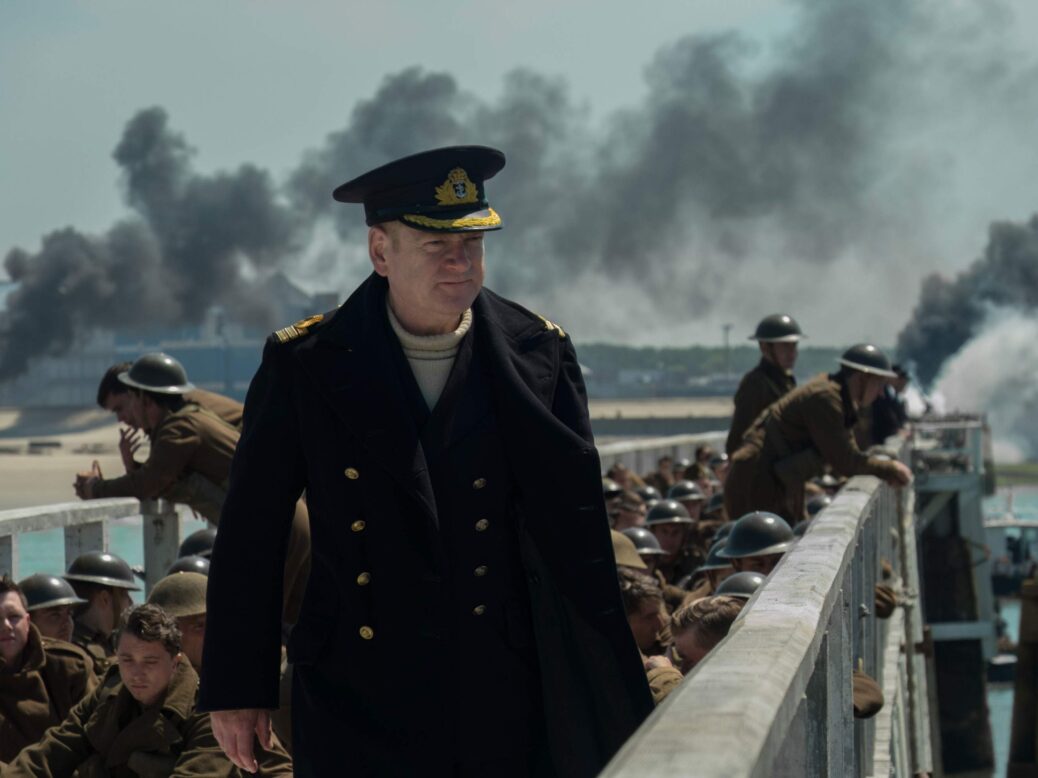
Christopher Nolan has made a necessary film, which is a worthy addition to his oeuvre, writes Sophie Killip
We all know the lore. The battle of Dunkirk was, of course, one of the worst military defeats for the Allies in the Second World War. And yet, at the same time, it was both miracle and turning-point – a moment of specifically British pluck. The limits of this narrative were in fact acknowledged cunningly by Churchill at the time. In a little known aside in the great speech to the Commons on 4th June 1940, he said: ‘Wars are not won by evacuations’. He was right: this one was to be won partly by the Americans.
But perhaps the prevailing national myth is true as far as it goes: here was, after all, a monumental event, when more than 350,000 British and French troops were safely evacuated from Normandy. Nobody thought it was possible – and the rest of Churchill’s ensuing oratory – ‘We shall fight on the beaches’ – borrowed from Neville Chamberlain as it might have been, ensured that we shall always feel inclined to remember, and celebrate it.
But the film-maker’s job is to tunnel deeper – to peer past the national story to what actually happened. This is to the good: we need to know the precise nature of our debt to our forefathers. That’s what Christopher Nolan has sought to do in his latest creation, Dunkirk. And it’s an exciting prospect: what can the auteur of time-bending narratives such as Inception (2010) and Interstellar (2014) make of a genre which is not exactly known for playful complexity?
Well, it’s certainly a spectacle – and even more than that, it manages to capture something of the raw, unadulterated terror of war. Not once does Dunkirk glamourise the nature of warfare – no ‘Dulce et Decorum est Pro patria mori’ here. Nolan has read his Wilfred Owen. And nor will there be any easy Spielbergian patriotism.
It’s interesting to see that Nolan’s own film-language survives here: he plays with time in Dunkirk, exactly as he has done in his previous masterpieces. We follow three storylines, split into land, sea and air – and, this being the tricksy director of Memento, each of these is told in three time-frames.
On land we follow Harry Styles as Alex for a week; we accompany an airborne Tom Hardy as Farrier for an hour; and we experience the tribulations of Mark Rylance as Mr. Dawson at sea for an extended period of time. Eventually, in true Nolan style, these timelines merge to form a cohesive narrative. This is war-film as relativity: Saving Private Ryan as told by Albert Einstein.
Some quibbles. The characters aren’t quite fully rounded, but it could be argued that Nolan’s films, which are primarily given over to complex time schemes, haven’t room to contain the slow burn of individual development in any case. Instead we are privy to what the film’s structure can accommodate: the inexorability of war keeps peeping through.
That said, the performances of Kenneth Branagh, Tom Hardy, Cillian Murphy, and Fionn Whitehead are all noteworthy. But the outstanding turn is from Rylance, as the weekend-sailor from Dorset who sails to Dunkirk with his son, and his son’s friend, to bring soldiers home. His performance will live long in the memory: a second Oscar is surely on the way.
But there’s a deeper point here. The rising tension of the film matches the unbearable nature of war. As the various protagonists are forced to re-evaluate, adapt and struggle for survival, the audience is hurried along with them at the cruel pace of war. We are forced to feel the raw essence of an event which we might otherwise think of in the facile terms of myth.
Is this Nolan’s best work? Perhaps not. But it is certainly his most necessary – an attempt to rescue a moment of history about which we may have begun to develop cosy notions, for the purposes of Nolan’s increasingly unique art, and our deeper understanding.
Recently
We must be thankful for Nolan’s Dunkirk spirit







